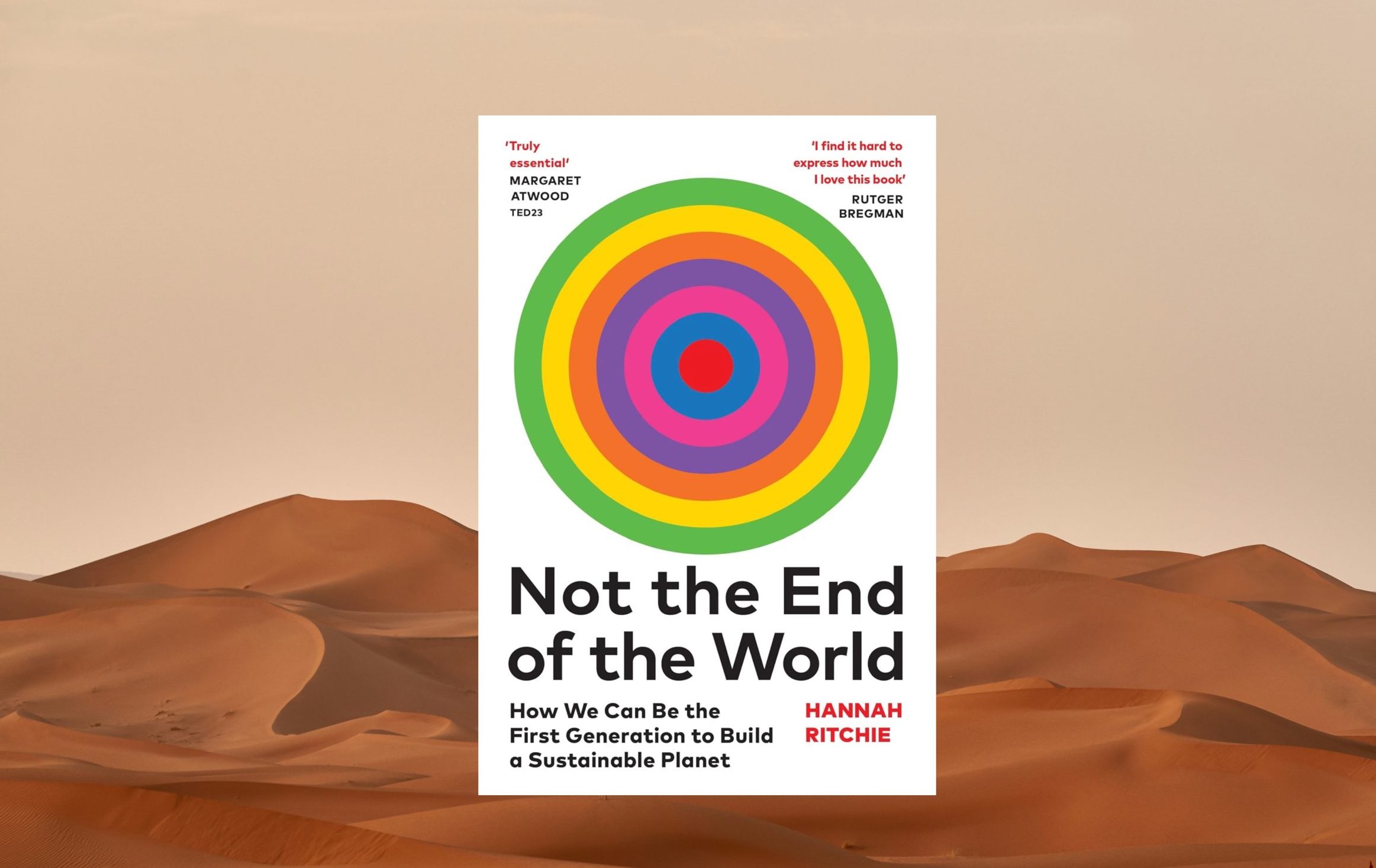 Terry Kemple is a retired GP living in Bristol. He has various roles promoting greater sustainability in general practice. He is a past President of the Royal College of General Practitioners. He is on X: @TKemple
Terry Kemple is a retired GP living in Bristol. He has various roles promoting greater sustainability in general practice. He is a past President of the Royal College of General Practitioners. He is on X: @TKemple
We may not be doomed! While the environmental situation is serious, not every disaster headline is accurate. There is hope.
“Human history becomes more and more a race between education and catastrophe.” ― H.G. Wells. The Outline of History (1920) vol. 2, ch. 41, pt. 4
Finding the truth is not the same as denying the environmental crisis. We need the best information to do the best management. False information including many doomsday headlines is everywhere. When these headlines get repeated, they start to sound like the truth.
Hannah Ritchie takes a clear-eyed view to understand how we got where we are, what the real problems are, and what we should be doing to build a truly sustainable world. She has various roles including lead researcher of the online publication Our World in Data that brings together the latest data and research on the world’s largest problems and makes it accessible for a general audience.
Based on the best information available and the speed of the progress we have made Ritchie is neither blindly optimistic nor pessimistic but is hopeful that we are on track to achieve sustainable living. We can avoid doom, but we do need to change how we manage the planet. She does believe that our use of science allows conditional optimism that sees challenges as opportunities to make progress and gives us the confidence that there are things we can do to make a difference.
A sustainable world meets the needs of the present without compromising the ability of future generation to meet their own needs.
If we use the 1987 United Nations definition of sustainable development the world has never been sustainable. A sustainable world meets the needs of the present without compromising the ability of future generation to meet their own needs. This is an iteration of the Golden Rule of ‘In everything, do to others what you would have them do to you’ This includes those who are distant in place or time, such as inhabitants of far-off countries and the future unborn generations.
Throughout Ritchie supports her arguments with evidence and data. For the first part of the sustainability development definition (the needs of the present) she believes that although we may feel we live in difficult times, overall and by most measures there is no better time to be alive than today. For the second half of the definition (without compromising the ability of future generations to meet their own needs) she highlights seven big problems: air pollution, climate change, deforestation, food, biodiversity loss, ocean plastics, and overfishing. Each of the problems is reviewed in separate chapters. There is overlap between many of the problems and their respective solutions. She immediately debunks two common ideas that will not fix our problems – depopulation and degrowth. World population passed ‘peak child’ in 2017 and when these children reach old age in the 2080s world population (at 10-11 billion people) will start to fall. Shrinking the economy will not solve our problems because it is our greater wealth and new technologies that should allow us to become more sustainable.
Ritchie also corrects many widespread but incorrect beliefs including:
• Scientists predict a 6°C temperature rise by 2100.
• The Amazon rainforest produces 20% of the planet’s oxygen and is on fire.
• Only 60 years of farming remain due to soil degradation.
• Over half the world’s wildlife populations have been killed off.
• An insect apocalypse is occurring.
• There will be more plastic than fish in the oceans by 2050.
• Oceans will be virtually empty by 2048.
• Palm oil should be completely avoided.
• Eating local is significantly better for the environment.
Ritchie believes that all the real problems can be solved in the next 50 years:
• Air Pollution: Can be reduced by providing clean cooking fuels, ending crop burning, removing sulphur from fossil fuels, and using electric cars.
• Climate Change: Requires moving away from fossil fuels.
• Deforestation: Needs zero deforestation policies, eating less meat (especially beef and lamb), improving crop yields, and paying poorer countries to preserve forests.
• Food Production: Can be enhanced by better crop yields, reducing meat consumption, using plant-based dairy alternatives, and minimizing food waste.
• Ocean Plastics: Requires international cooperation and better funding to prevent plastic from entering the oceans.
• Overfishing: Can be managed through reduced fishing rates and fish farming.
• Biodiversity Loss: Will improve by addressing the other issues.
These are interconnected problems and more can be achieved by addressing all of them
No generation has ever achieved sustainability. We have never met the needs of the current generation but if we can change, we could be the first generation to build a truly sustainable planet.
Featured Book: Hannah Ritchie, Not the End of the World. How We Can Be the First Generation to Build a Sustainable Planet, Chatto & Windus (11 Jan. 2024), ISBN 978-1784745004, Hardback 352 pages, £22
Website: https://www.nottheendoftheworld.co.uk/
Featured Photo by Wolfgang Hasselmann on Unsplash







This article presents a compelling vision for building a sustainable planet. With colleagues and engineers of Agilemaking.com, we’re exploring how modern CNC technology can play a role in this critical mission. For instance, CNC machines can be used to create eco-friendly products from recycled materials, such as ocean plastics, which align with the principles of sustainability discussed here. How do you think advanced manufacturing technologies can further contribute to creating a more sustainable future?